Key Recommendations
Previous position papers and publications
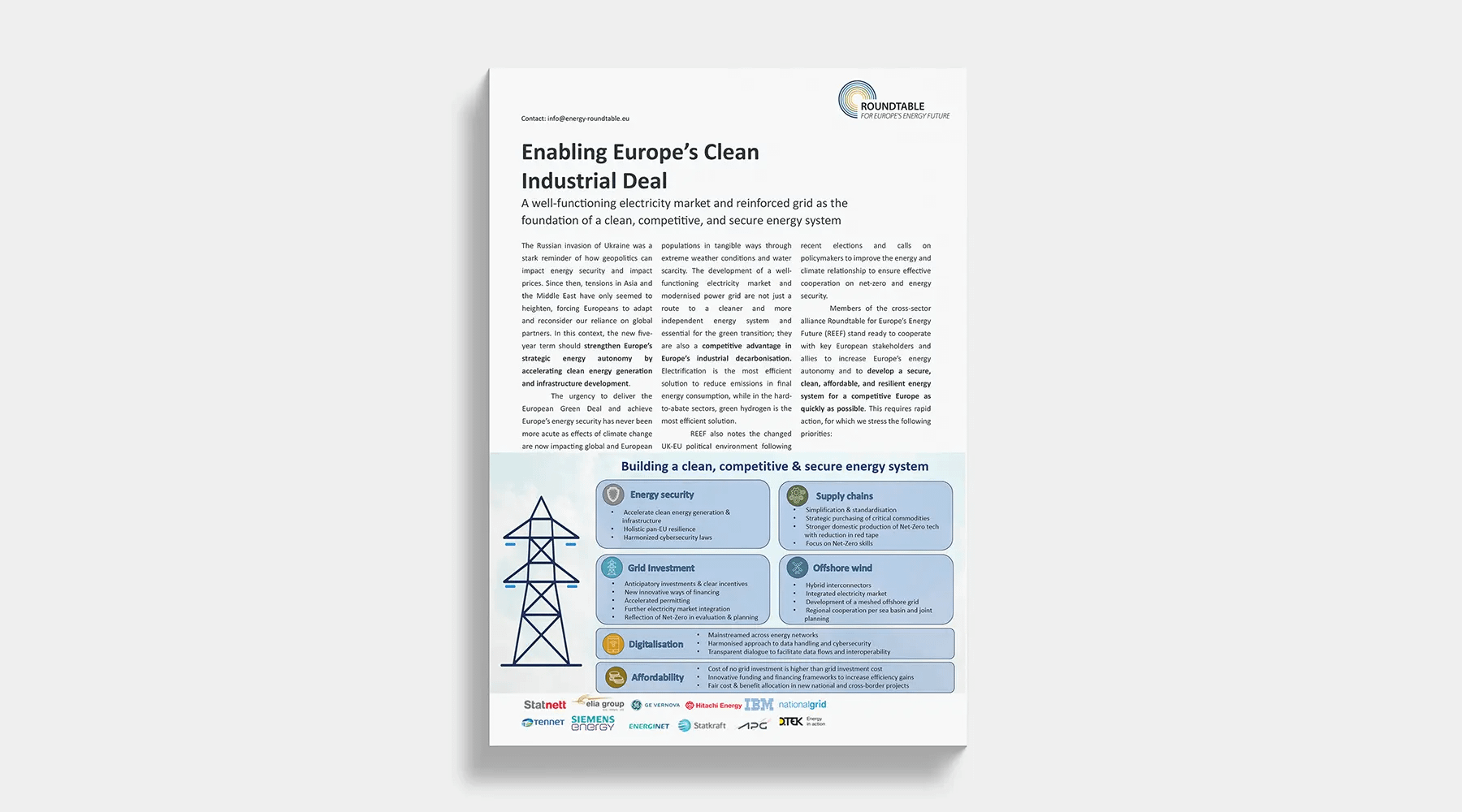
MANIFEST
Enabling Europe’s Clean Industrial Deal
A well-functioning electricity market and reinforced grid as the foundation of a clean, competitive, and secure energy system
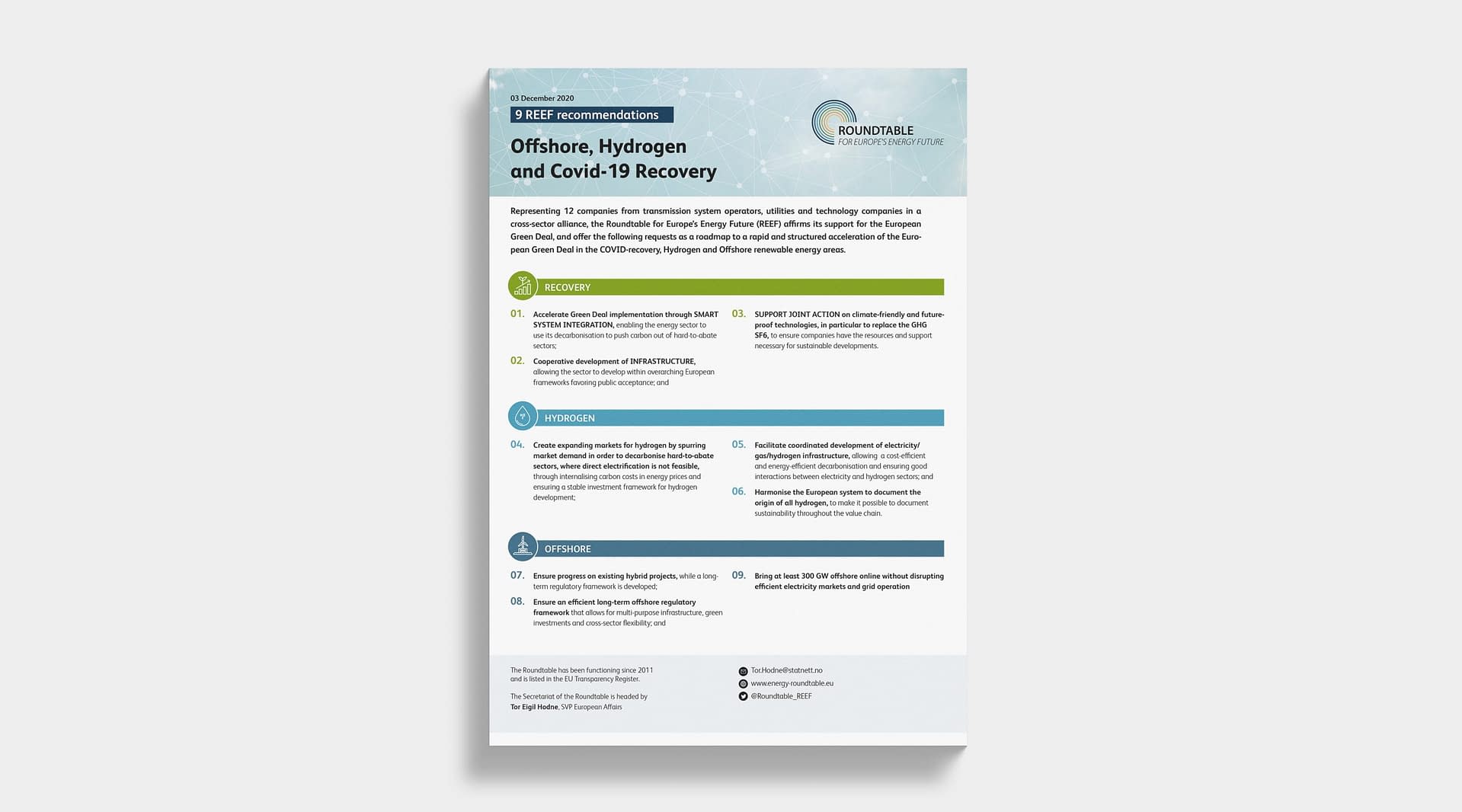
9 Recommendations
Offshore, Hydrogen and Covid-19 Recovery
REEF’s 9 Recommendations for a green recovery, and successful offshore and hydrogen strategies as presented to MEP Morten Helveg Petersen and the upcoming Portuguese Council Presidency
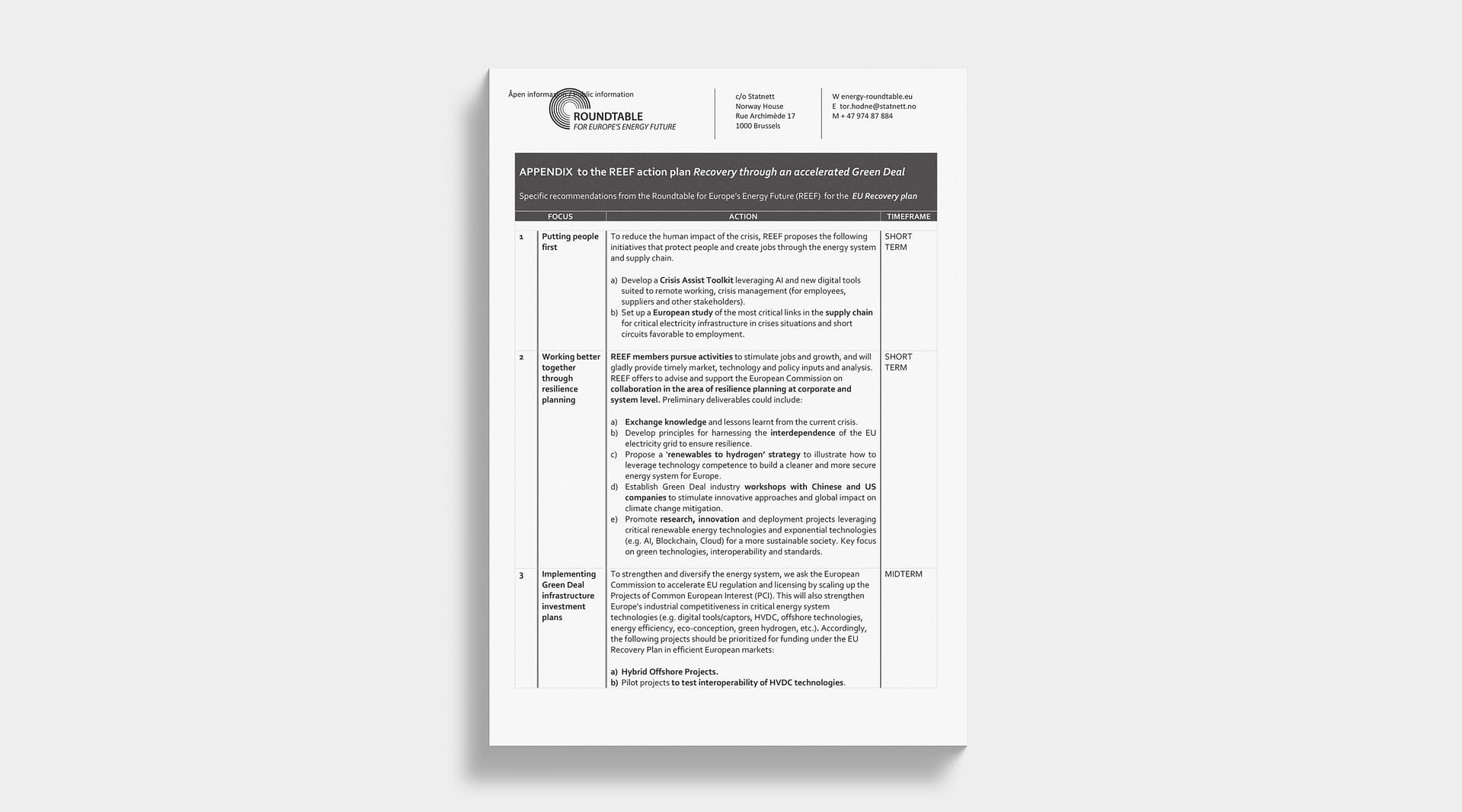
Action Plan
APPENDIX to the REEF action plan Recovery through an accelerated Green Deal
Specific recommendations from the Roundtable for Europe’s Energy Future(REEF) for the EU post-COVID economic Recovery plan as delivered on request to Energy Commissioner Simson
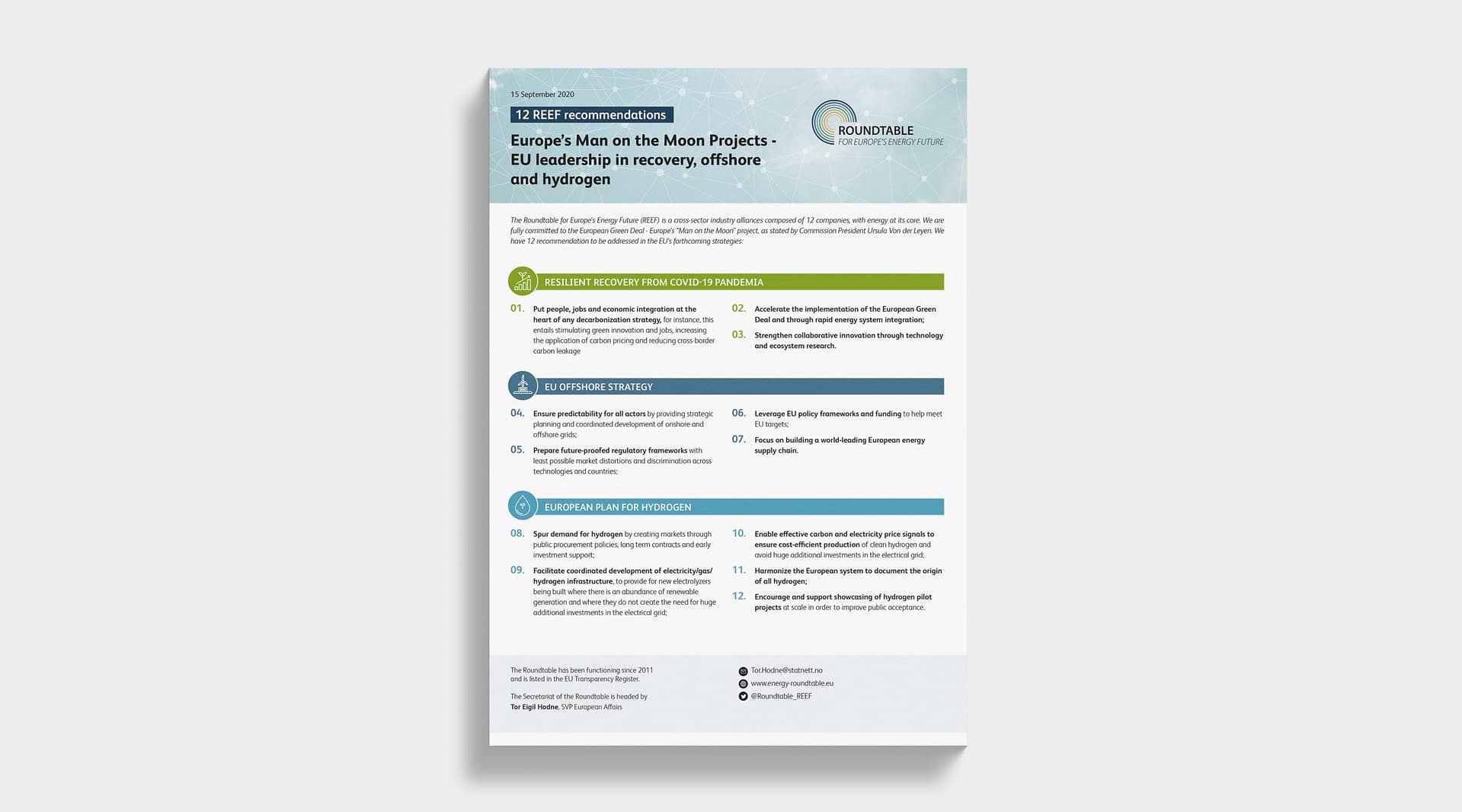
12 Recommendations
Europe’s Man on the Moon Projects
Our 12 recommendations for a successful implementation of the European post-COVID recovery, the EU offshore strategy and the EU hydrogen strategy
12 Joint Messages
REALISING THE EUROPEAN GREEN DEAL IN A TIME
OF GLOBAL EMERGENCY
In light of the COVID pandemic REEF stresses the importance of secure and sustainable energy supply and reliable digital infrastructure for our well-being and a functioning society
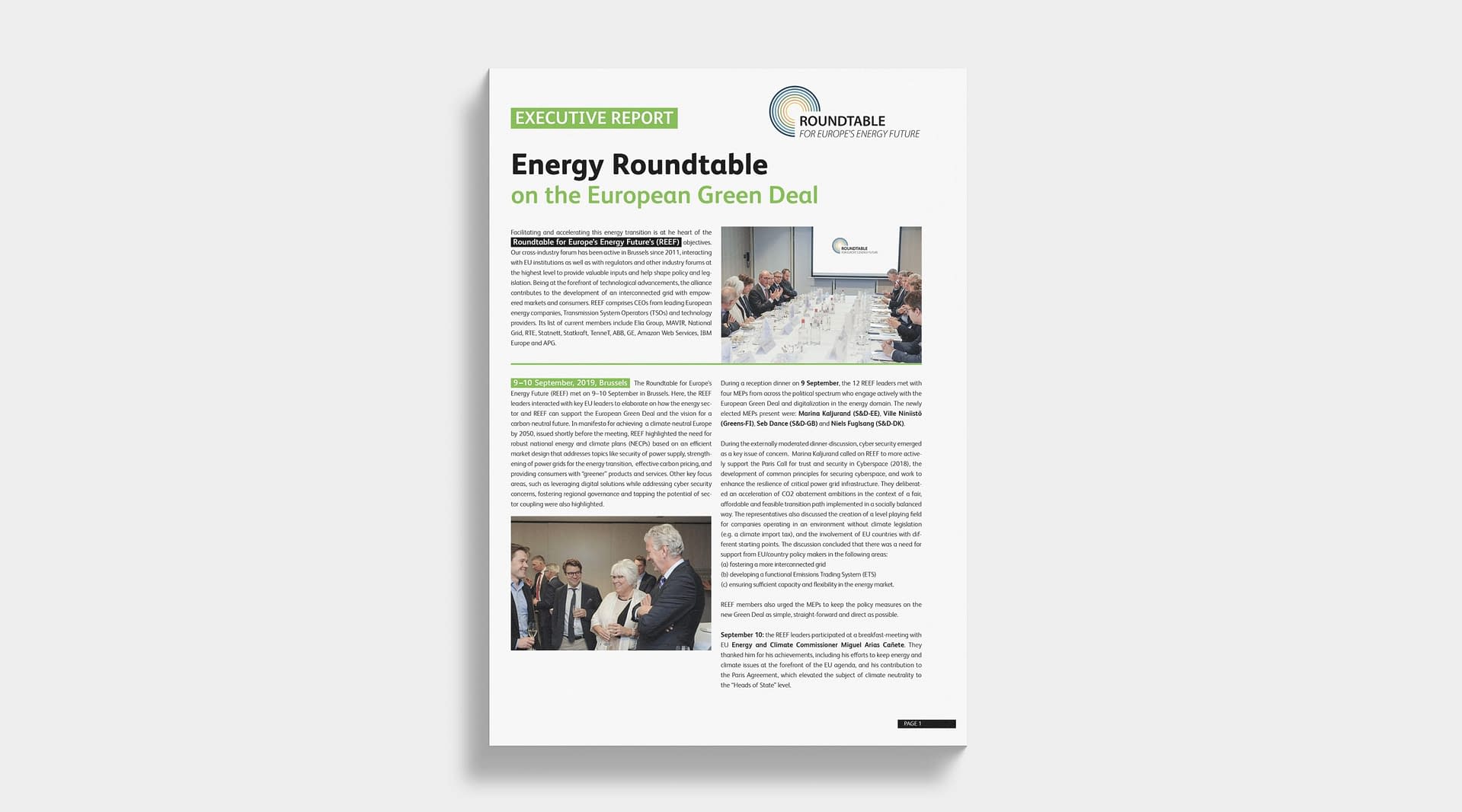
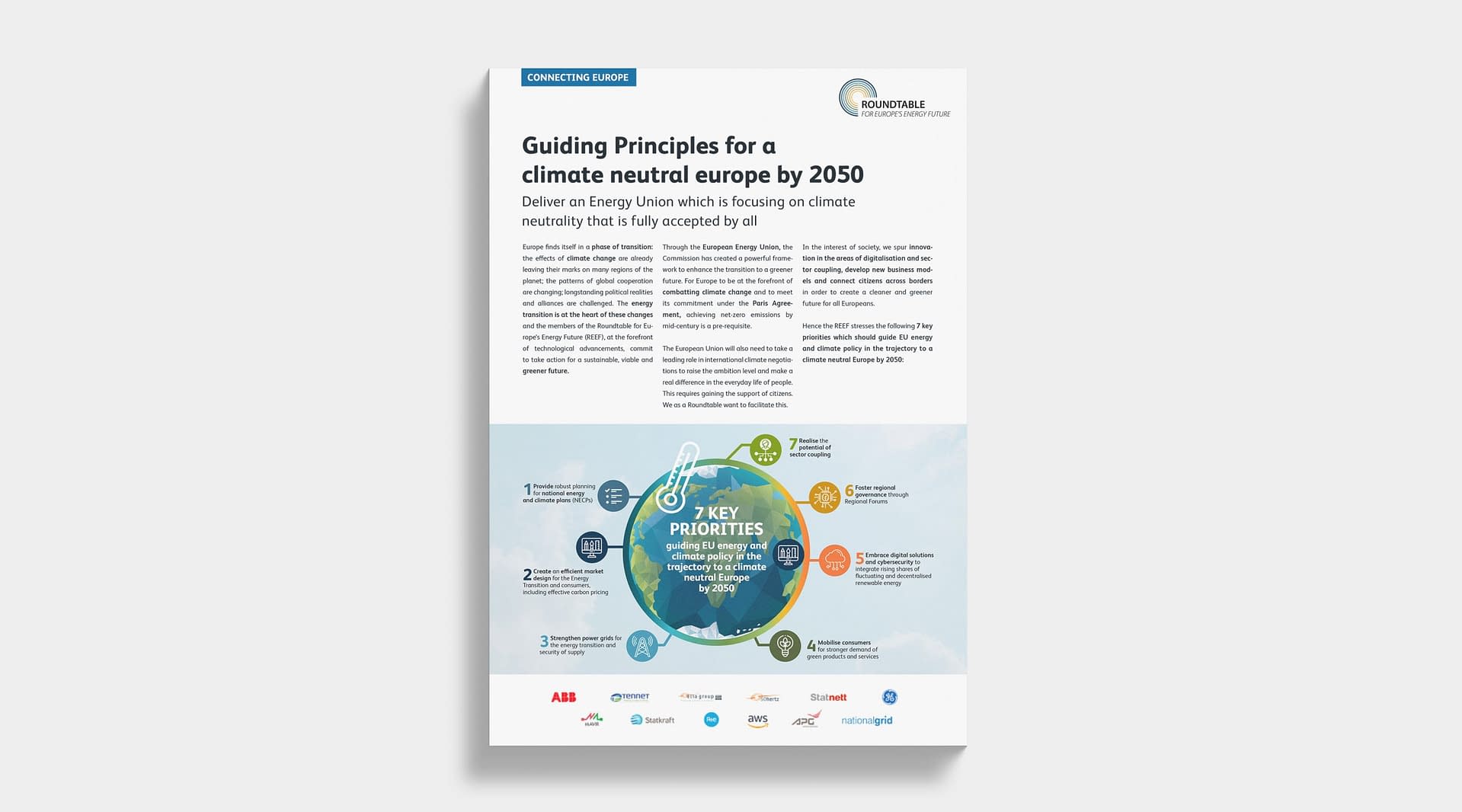
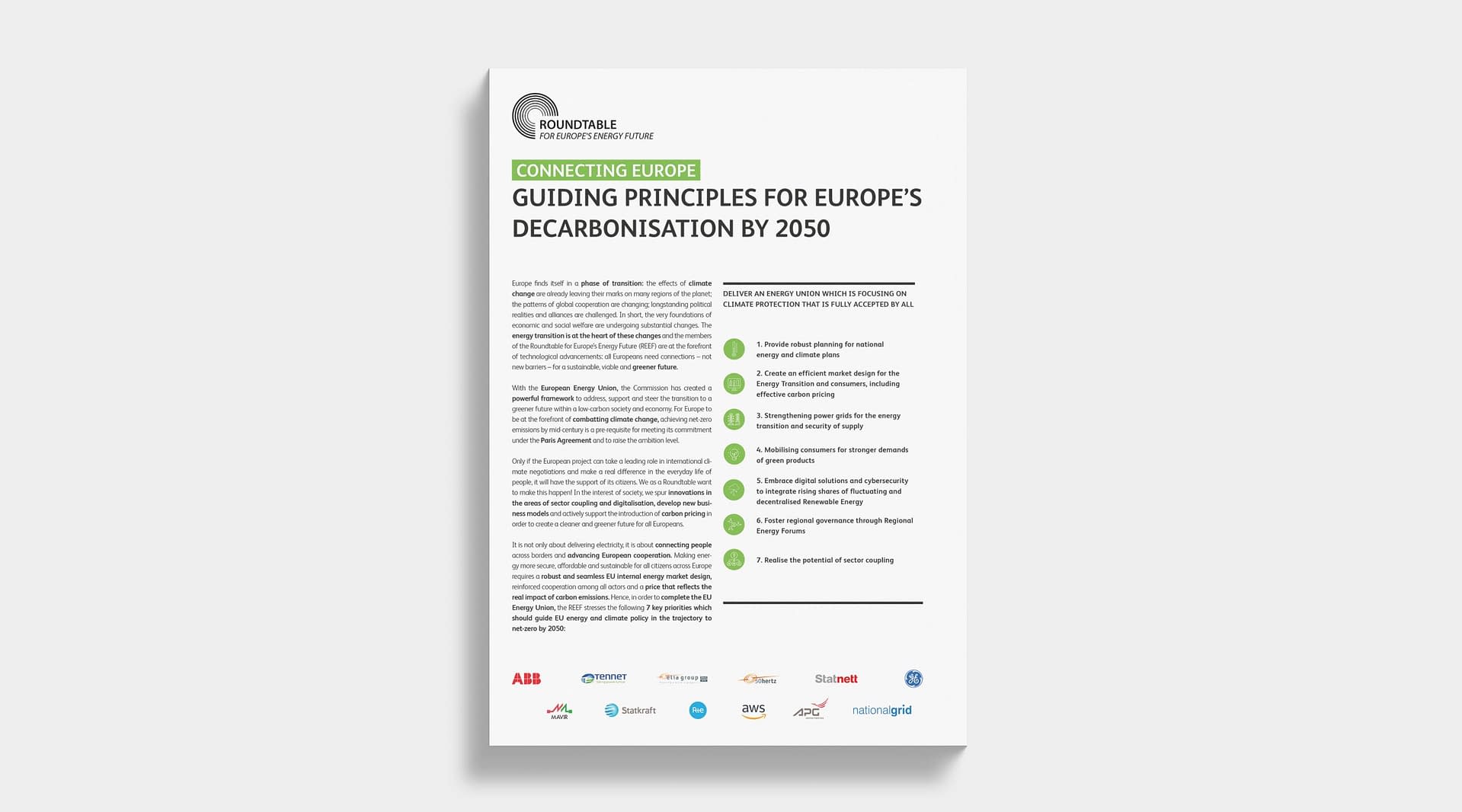
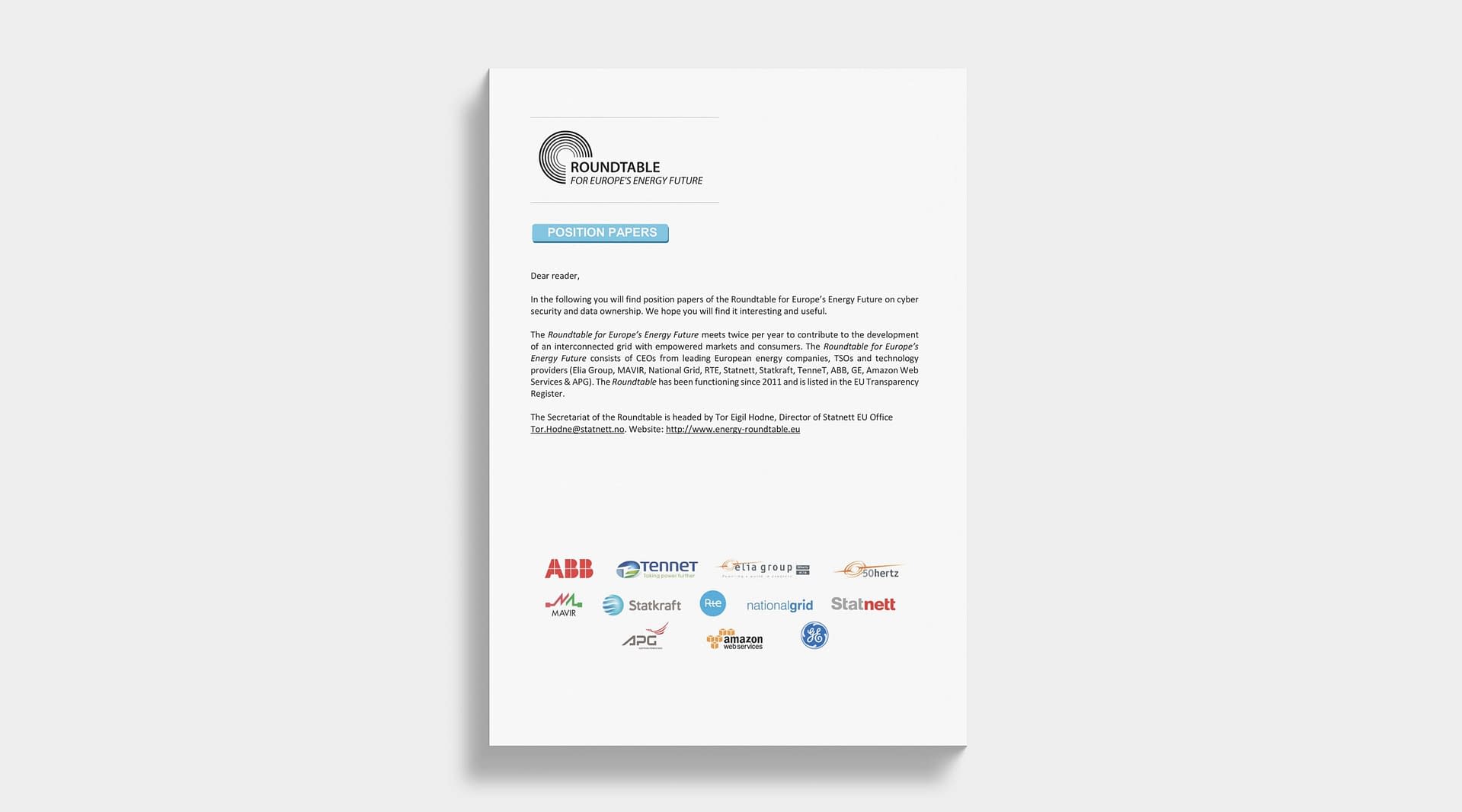
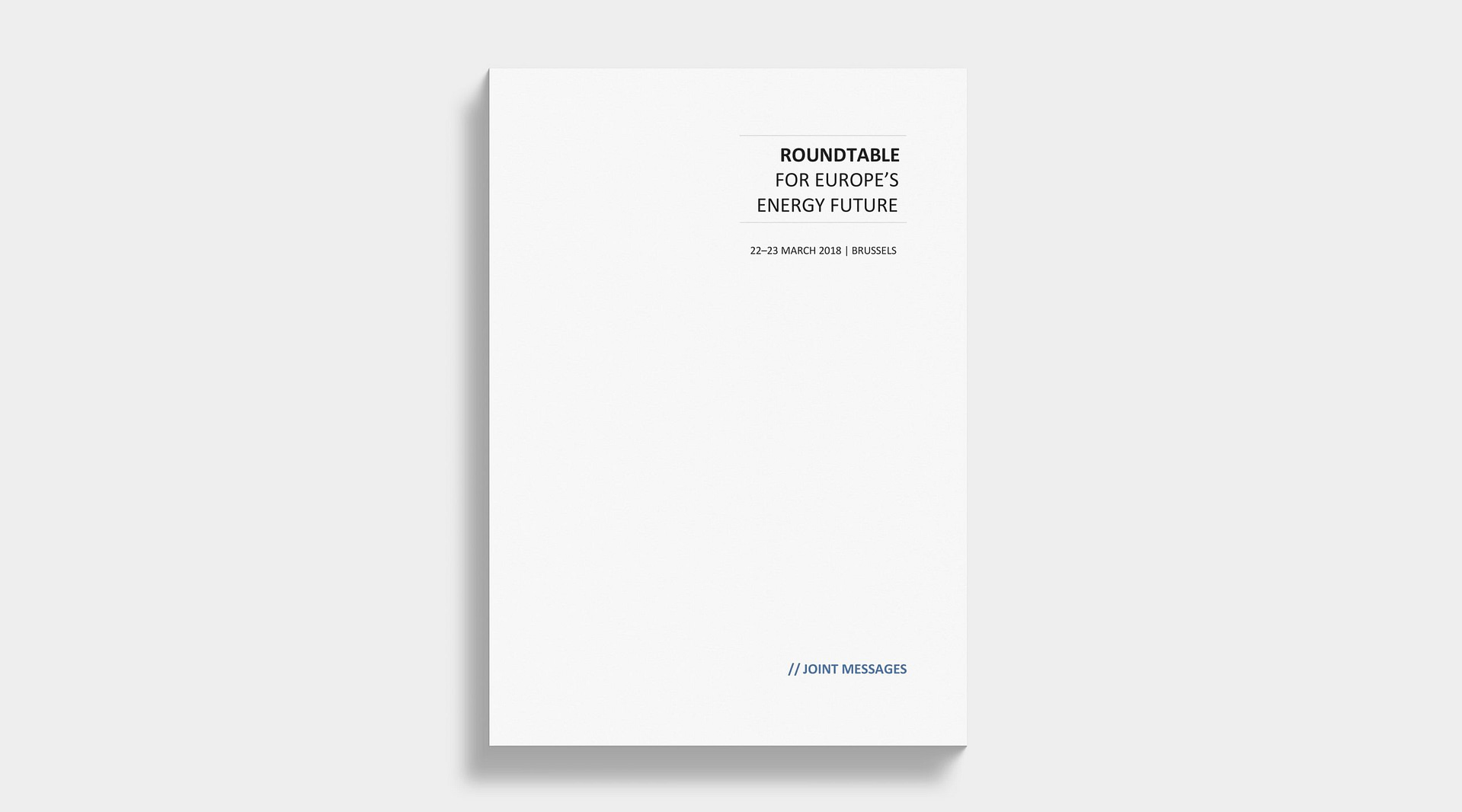
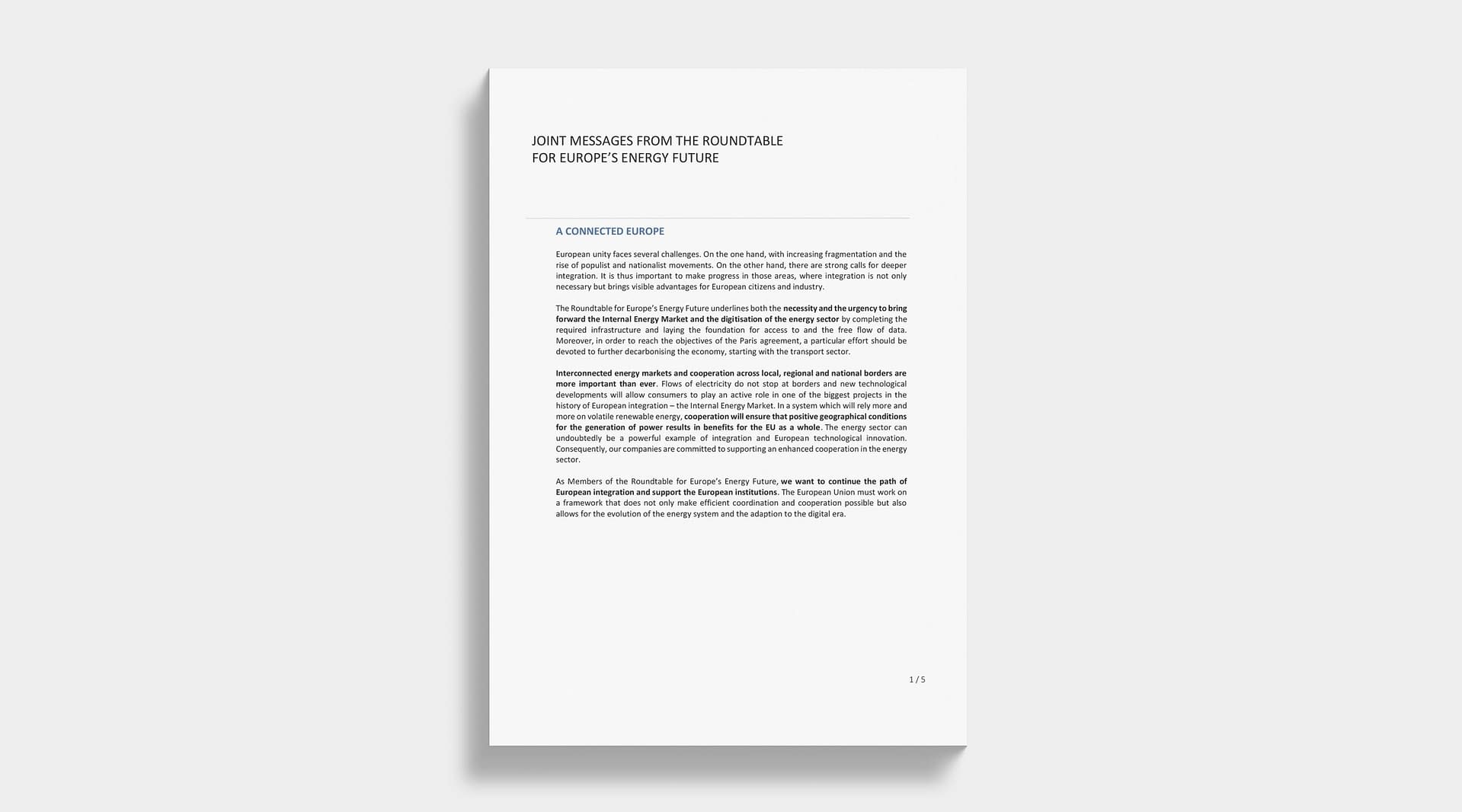
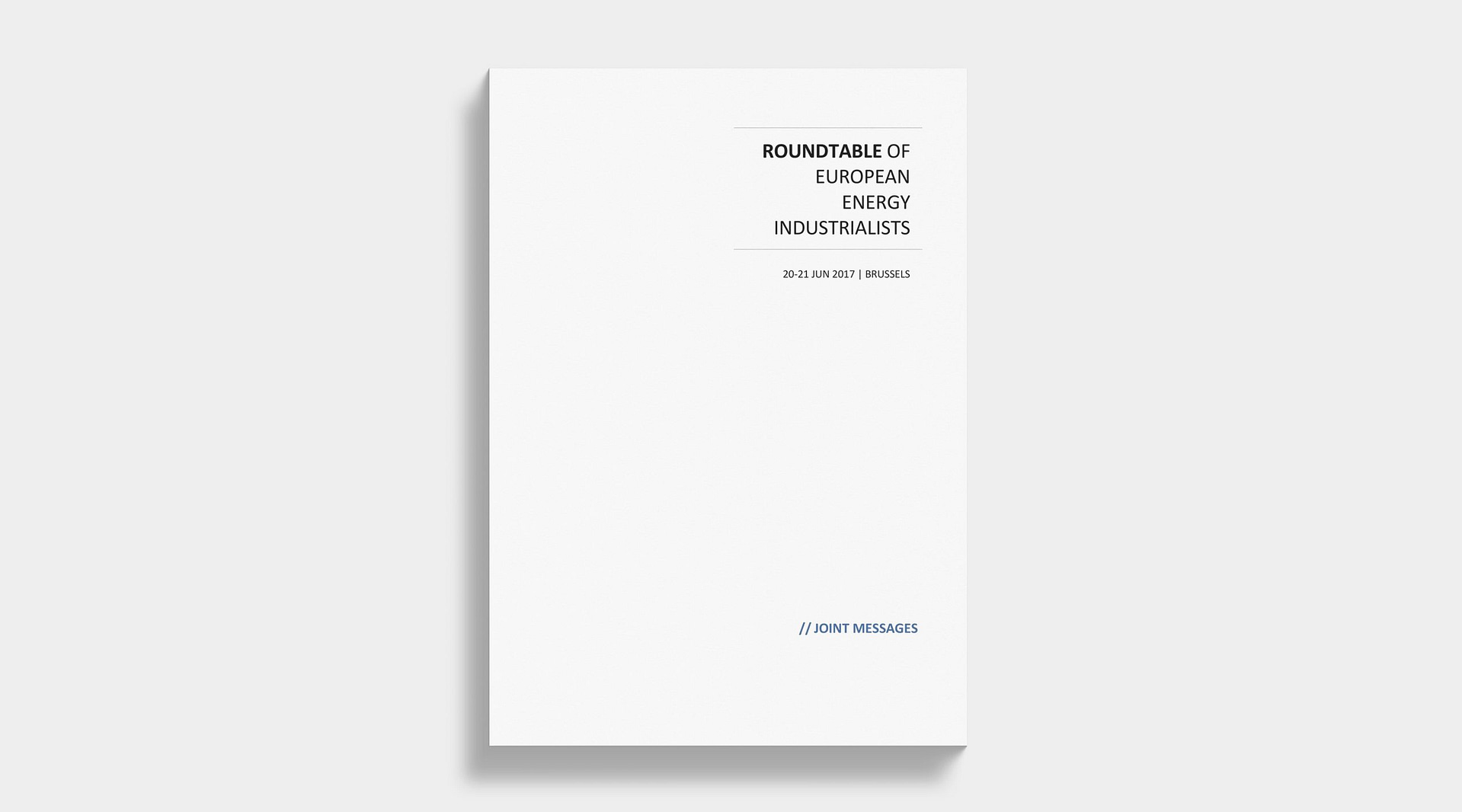
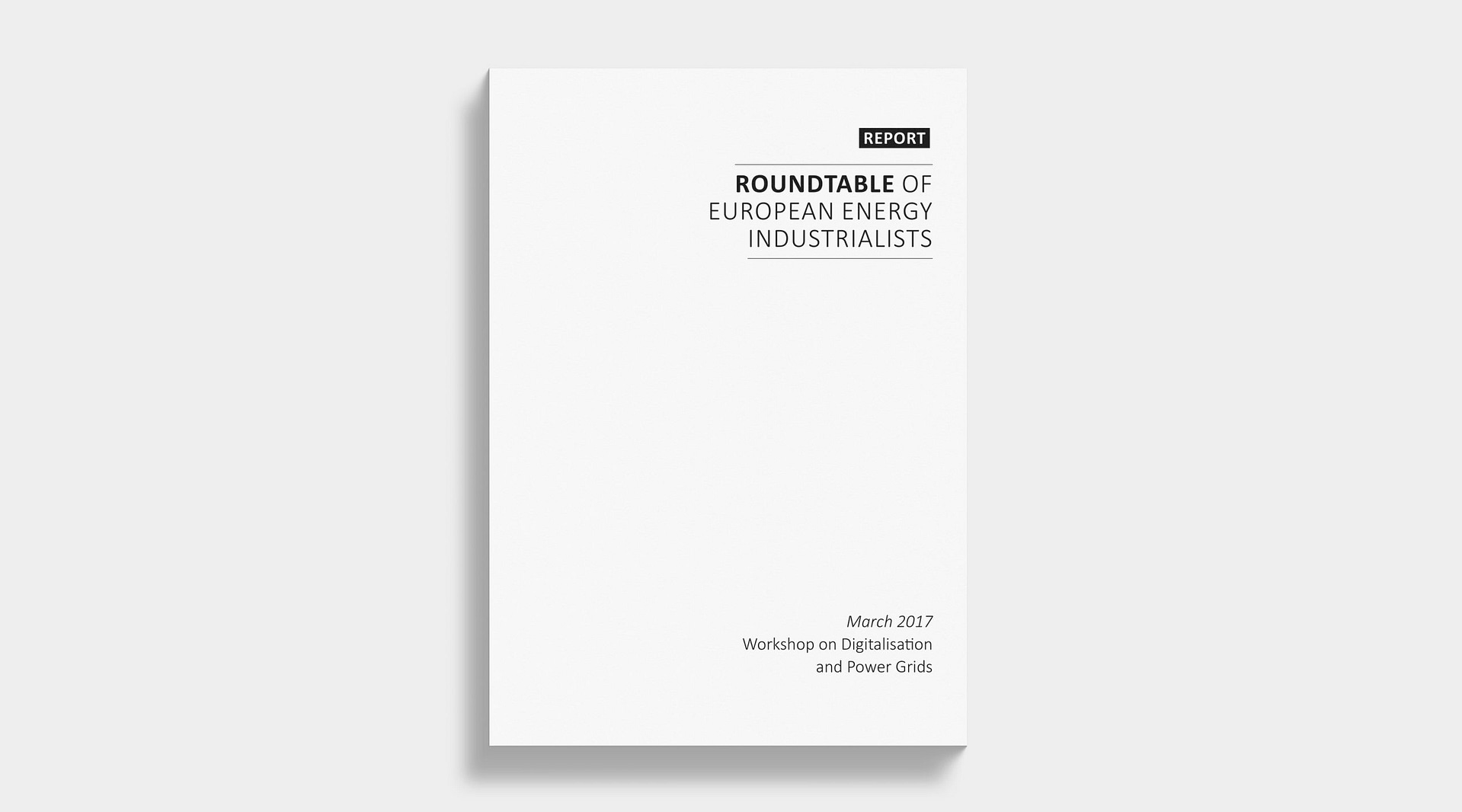
Workshop on digitalisation and power grids
Workshop on Digitalisation and Power Grids
MAR 2017
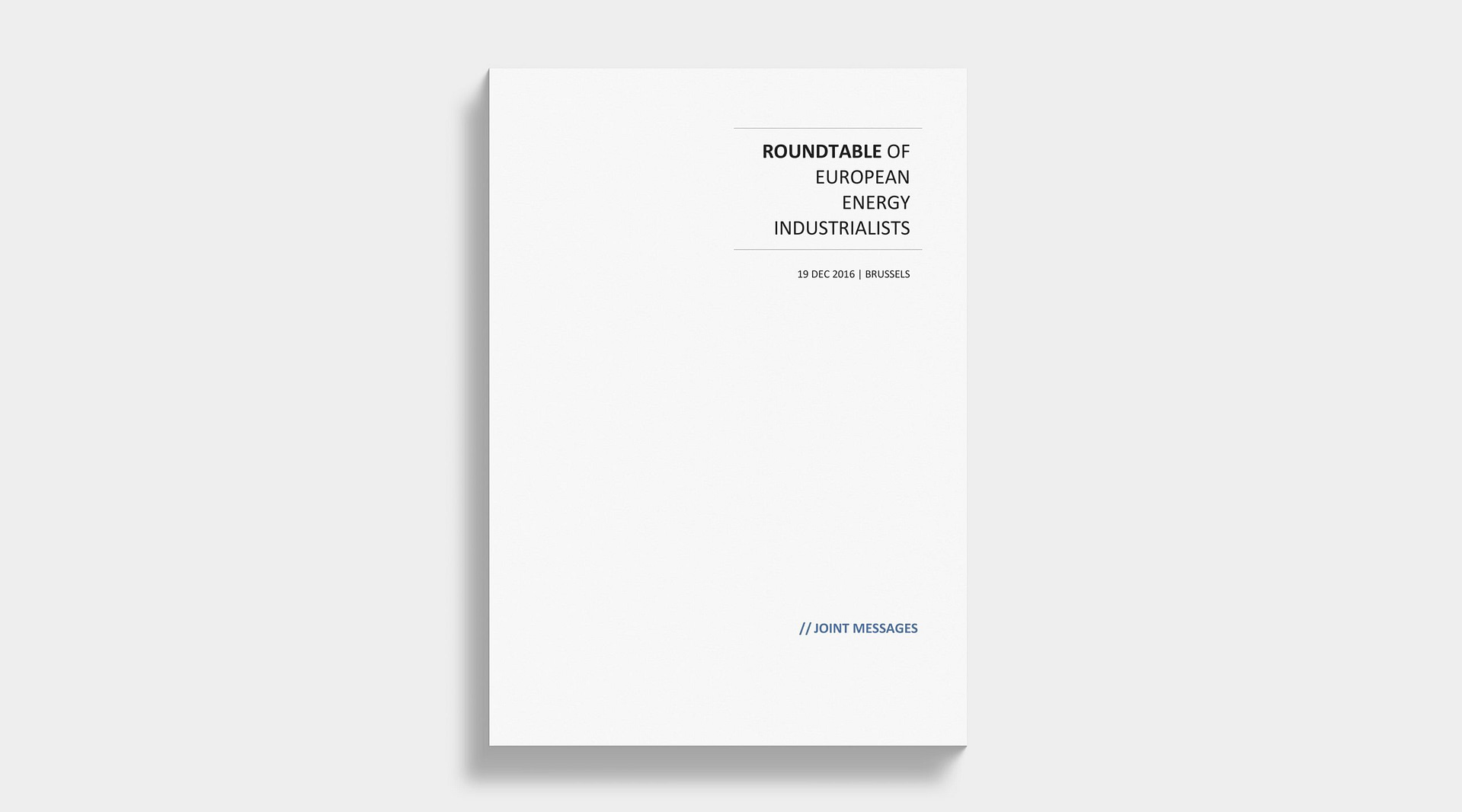
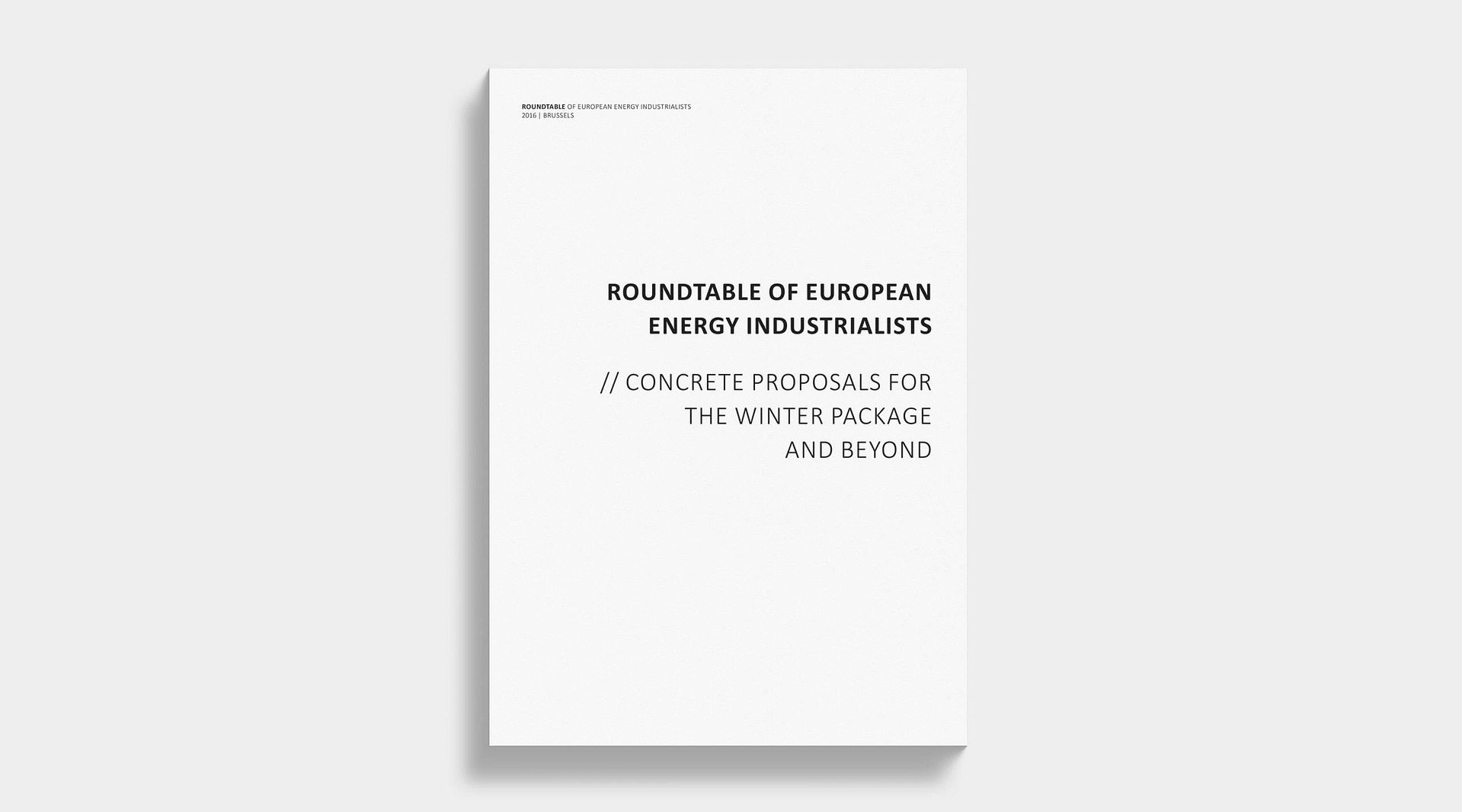
Concrete proposals for the winter package and beyond
Roundtable of European Energy Industrialists MAY 2016
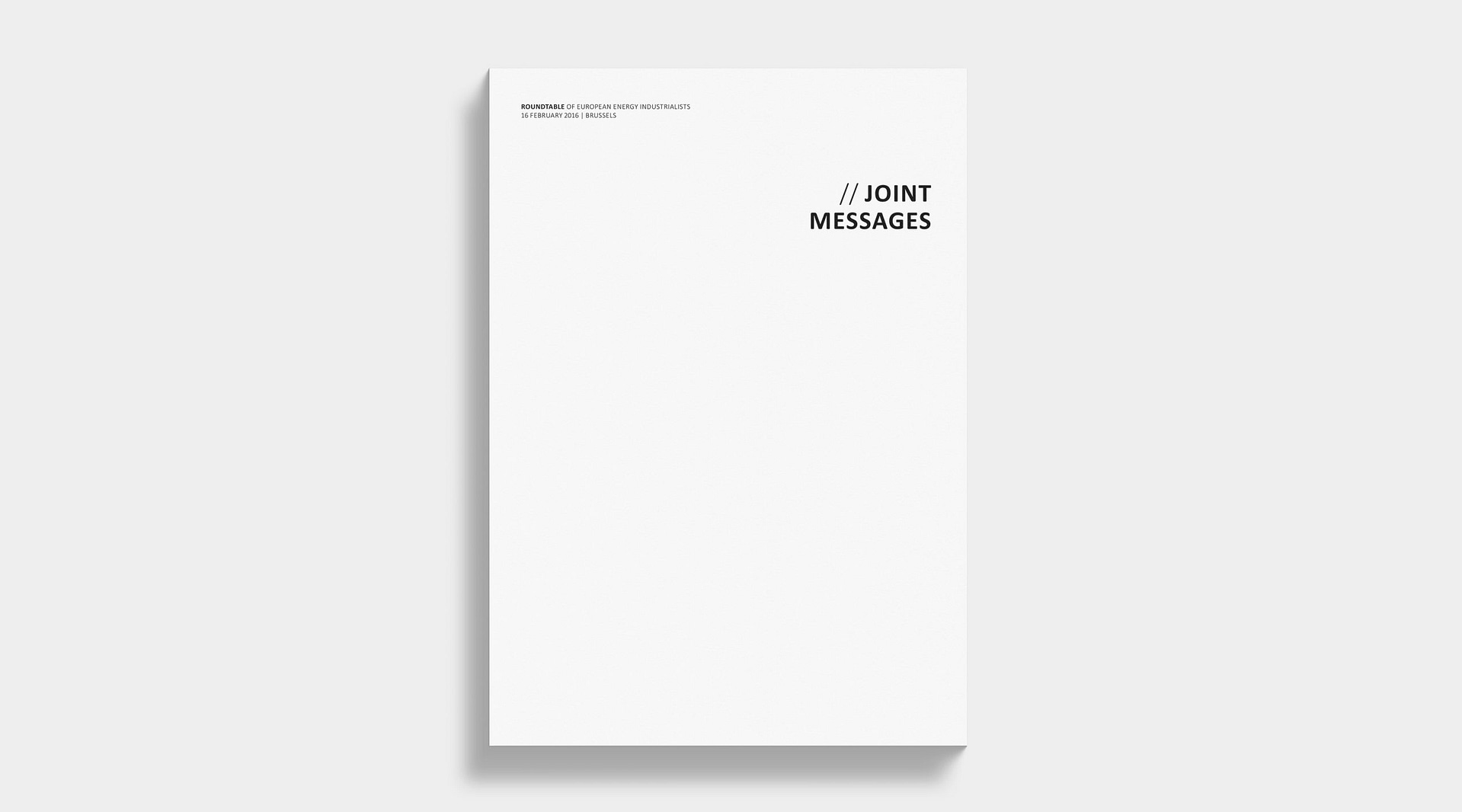
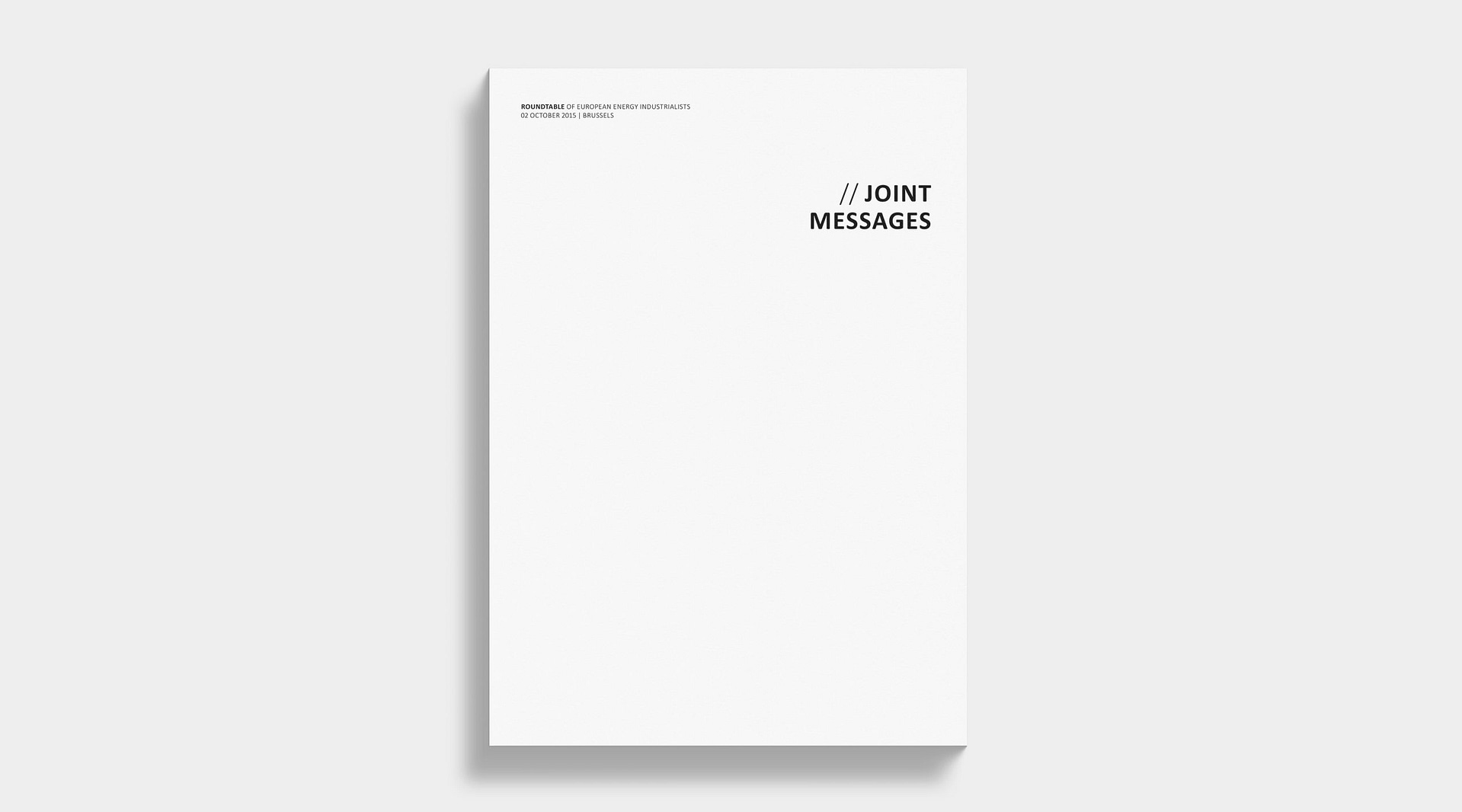

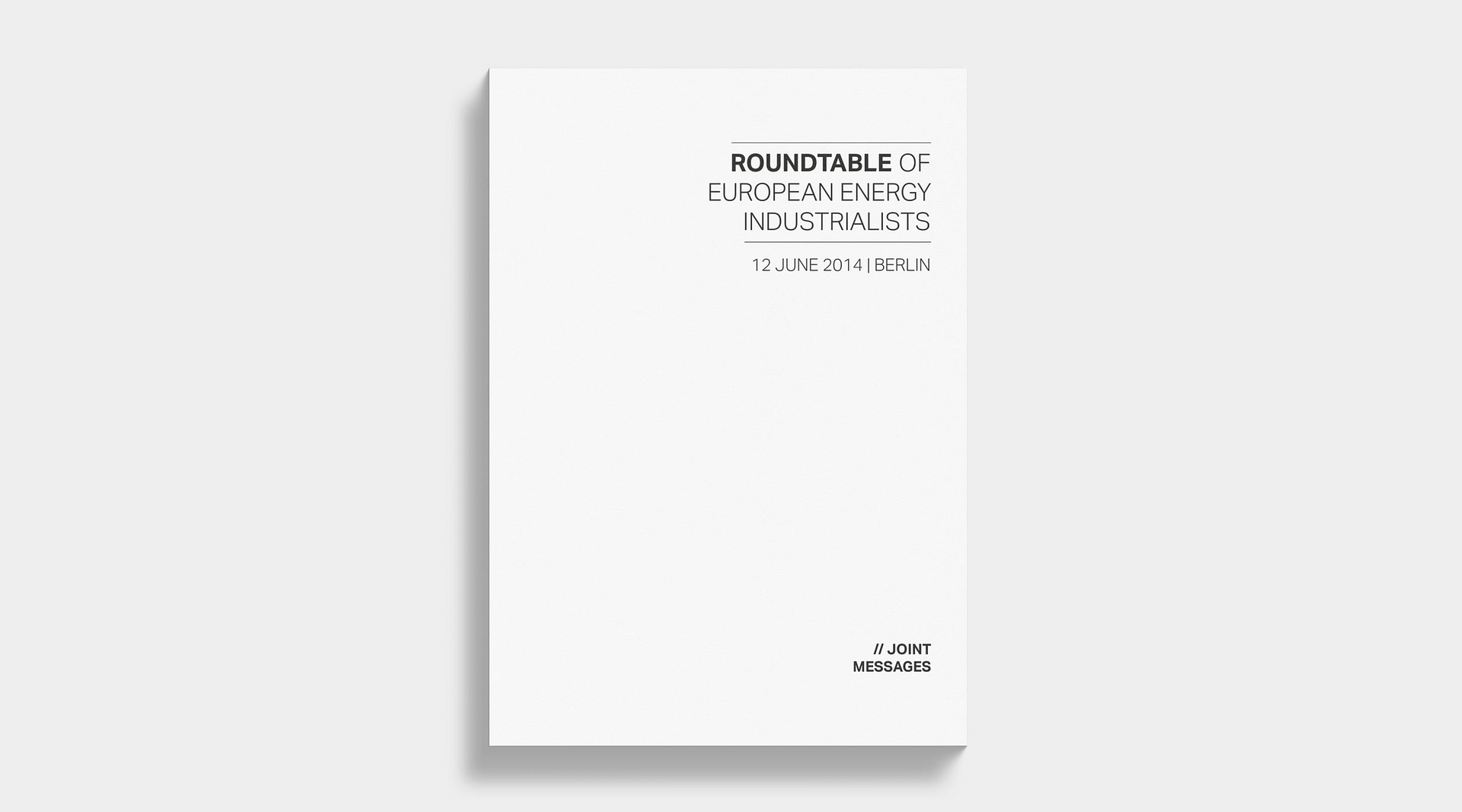
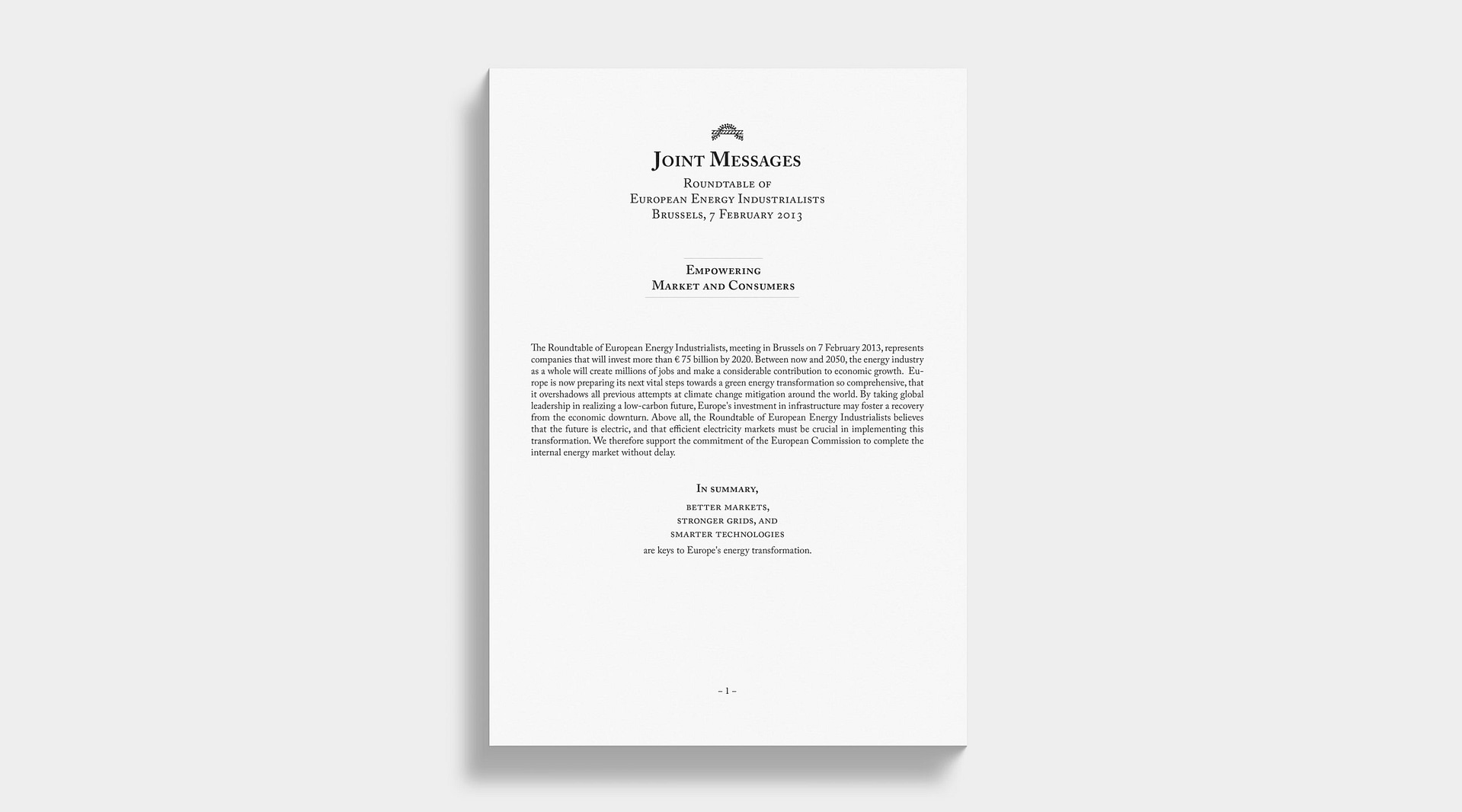
Our latest publication
Our latest publication
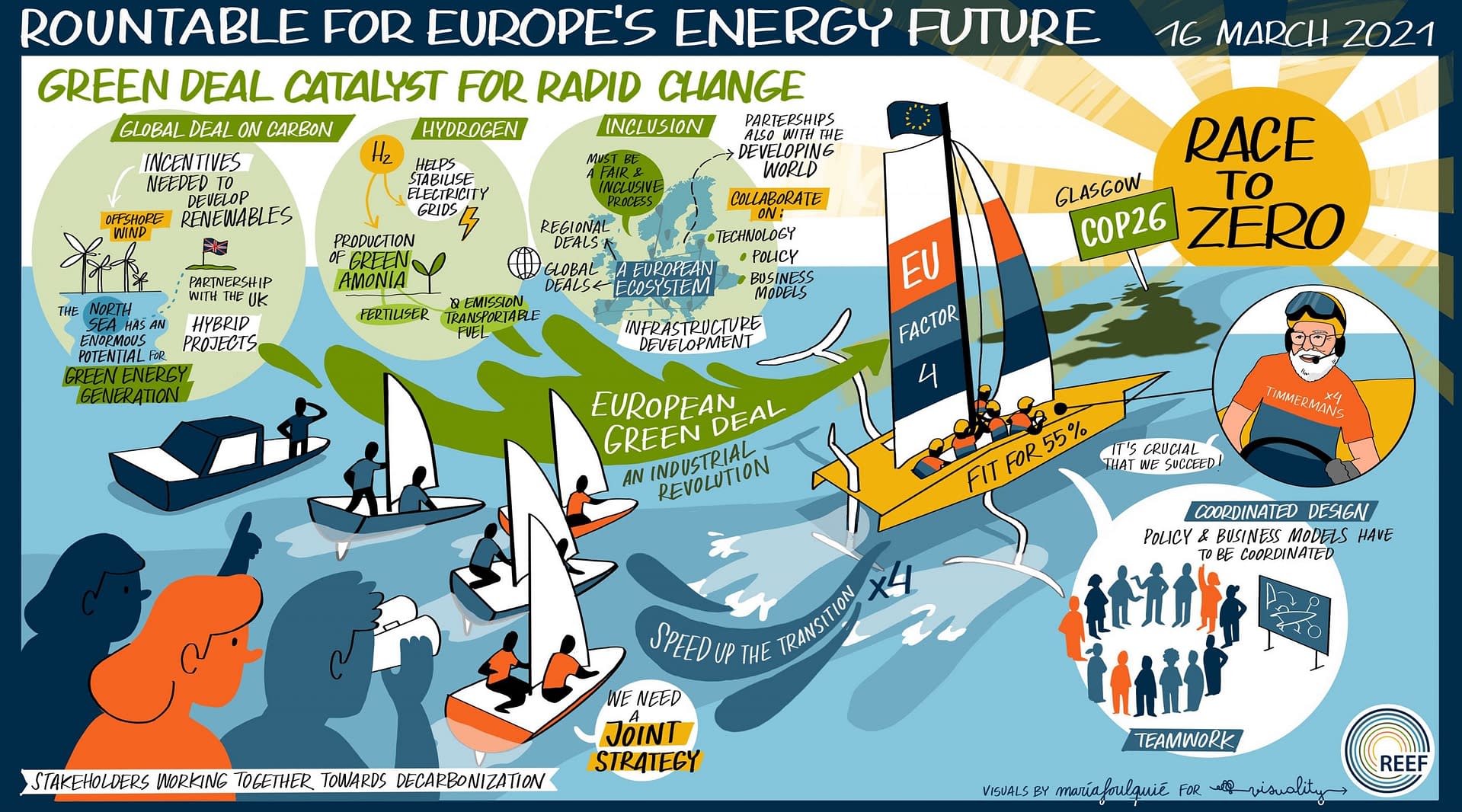
Position Paper
Exchange with EVP Timmermans – REEF’s three catalysts for the European Green Deal
On 16 March 2021, we in REEF were happy and proud to discuss the needs of the energy transition with Executive Vice President of the European Commission Frans Timmermans. We need a factor four acceleration in decarbonisation from 20% over 30 years to 35% over ten years; a factor four acceleration in European offshore renewable capacity; a just and inclusive transition and for the EU to connect to neighbouring countries in order to fully exploit our shared renewable energy potential. Towards COP26 in Glasgow, REEF sees a window of opportunity for the energy transition, and we offer our three catalysts for the European Green Deal:
- A global deal on carbon to drive carbon out of hard-to-abate sectors must be reached at COP26;
- Green ammonia and green hydrogen offer the next step for remaining sectors especially for green heavy-duty transport, green shipping and green fertilisers;
- We need to enable inclusion for a just transition, recognising inclusiveness as the road to public acceptance, connecting with neighbours to our North, South, East and West.
Exchange with EVP Timmermans – REEF’s three catalysts for the European Green Deal
On 16 March 2021, we in REEF were happy and proud to discuss the needs of the energy transition with Executive Vice President of the European Commission Frans Timmermans. We need a factor four acceleration in decarbonisation from 20% over 30 years to 35% over ten years; a factor four acceleration in European offshore renewable capacity; a just and inclusive transition and for the EU to connect to neighbouring countries in order to fully exploit our shared renewable energy potential. Towards COP26 in Glasgow, REEF sees a window of opportunity for the energy transition, and we offer our three catalysts for the European Green Deal:
- A global deal on carbon to drive carbon out of hard-to-abate sectors must be reached at COP26;
- Green ammonia and green hydrogen offer the next step for remaining sectors especially for green heavy-duty transport, green shipping and green fertilisers;
- We need to enable inclusion for a just transition, recognising inclusiveness as the road to public acceptance, connecting with neighbours to our North, South, East and West.
Previous position papers and publications

MANIFEST
Enabling Europe’s Clean Industrial Deal
A well-functioning electricity market and reinforced grid as the foundation of a clean, competitive, and secure energy system

9 Recommendations
Offshore, Hydrogen and Covid-19 Recovery
REEF’s 9 Recommendations for a green recovery, and successful offshore and hydrogen strategies as presented to MEP Morten Helveg Petersen and the upcoming Portuguese Council Presidency

Action Plan
APPENDIX to the REEF action plan Recovery through an accelerated Green Deal
Specific recommendations from the Roundtable for Europe’s Energy Future(REEF) for the EU post-COVID economic Recovery plan as delivered on request to Energy Commissioner Simson

12 Recommendations
Europe’s Man on the Moon Projects
Our 12 recommendations for a successful implementation of the European post-COVID recovery, the EU offshore strategy and the EU hydrogen strategy
12 Joint Messages
REALISING THE EUROPEAN GREEN DEAL IN A TIME
OF GLOBAL EMERGENCY
In light of the COVID pandemic REEF stresses the importance of secure and sustainable energy supply and reliable digital infrastructure for our well-being and a functioning society








Workshop on digitalisation and power grids
Workshop on Digitalisation and Power Grids
MAR 2017


Concrete proposals for the winter package and beyond
Roundtable of European Energy Industrialists MAY 2016







